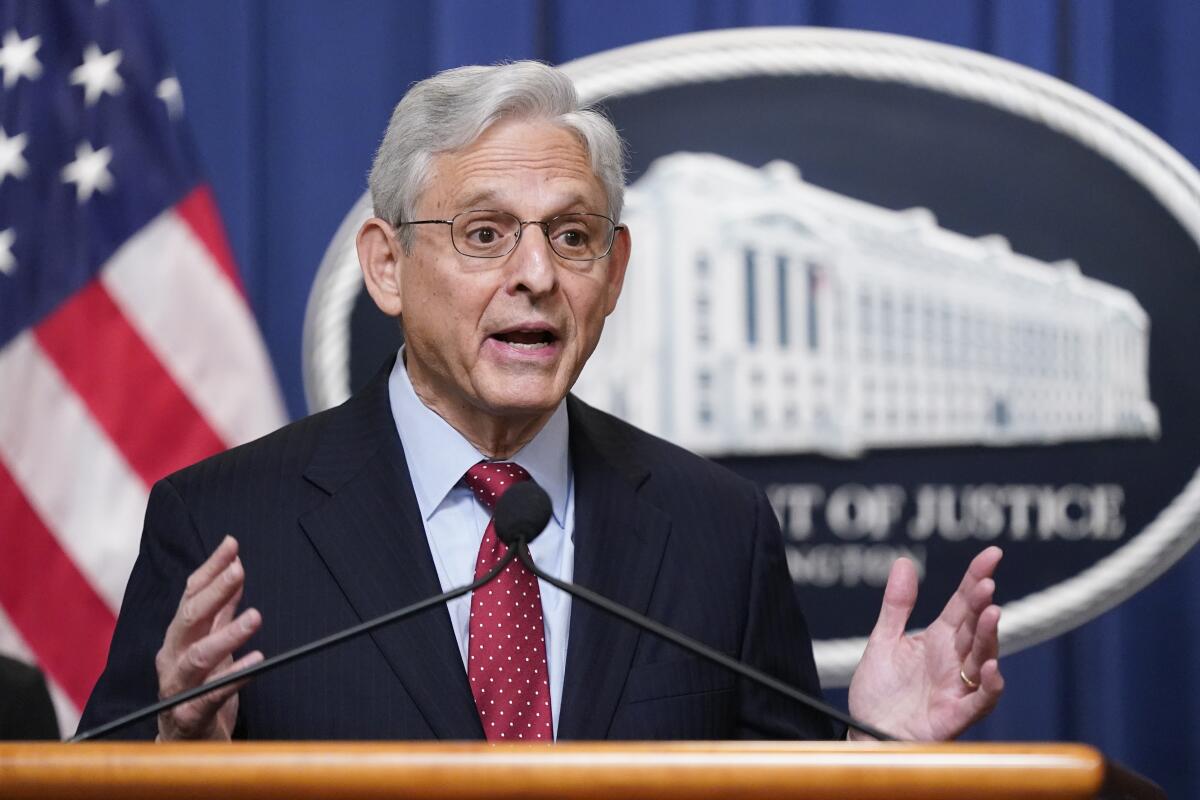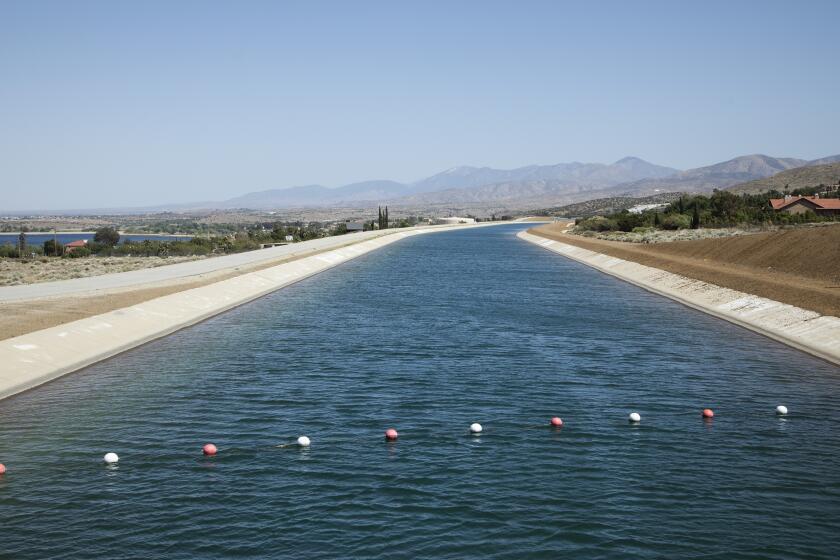Biden administration to crack down on industrial polluters in poor and minority areas

- Share via
WASHINGTON — Following through on a campaign promise, the Biden administration on Thursday announced a wide-ranging enforcement strategy aimed at holding industrial polluters accountable for damage done to poor and minority communities.
The strategy includes creation of an Office of Environmental Justice within the Justice Department to focus on “fenceline communities” that have been exposed to air and water pollution from chemical plants, refineries and other industrial sites.
The plan also reinstates a dormant program that allowed fines paid by industry as part of a settlement go to community activities such as river cleanup, health clinics or other programs that benefit the environment or public health. The program was used by presidents from both parties before being eliminated by the Trump administration.
“Although violations of our environmental laws can happen anywhere, communities of color, Indigenous communities and low-income communities often bear the brunt of the harm caused by environmental crime, pollution and climate change,’’ Atty. Gen. Merrick Garland said at a news conference.
“And for far too long, these communities have faced barriers to accessing the justice they deserve,’’ he said.
“No American should have to live, work or send their kids to school in a neighborhood that carries an unfair share of environmental hazards,’’ added Associate Atty. Gen. Vanita Gupta.
Water suppliers in parts of Southern California were ordered to impose severe water restrictions. Details of the new rules are starting to take shape.
President Biden promised during the 2020 campaign that he would establish an environmental justice unit within the Justice Department and elevate environmental justice issues in an all-of-government approach.
In a related development, the White House announced Thursday that Jalonne White-Newsome will lead environmental justice efforts at the White House Council on Environmental Quality. White-Newsome succeeds Cecilia Martinez, who stepped down in January.
White-Newsome, of Michigan, is founder and chief executive of Empowering a Green Environment and Economy, a consulting firm focused on climate change, public health and environmental and racial equity.
Brenda Mallory, chair of the Council on Environmental Quality, called White-Newsome “a strong and effective champion for communities that have been overburdened by pollution and subjected to decades of environmental injustice.’’ Her ability to “listen deeply, bring people together and find creative solutions will be invaluable,’’ Mallory said.
On enforcement, the strategy unveiled Thursday is intended to guide the work of employees throughout the Justice Department, including U.S. attorneys across the country who will begin a renewed focus on environmental justice issues, Garland and Gupta said.
The new office “will prioritize meaningful and constructive engagement with the communities most affected by environmental crime and injustice,’’ Garland said. “Whenever possible, these efforts will respond directly to community needs and concerns.’’
President Joe Biden is turning to a Cold War-era law to boost production of lithium and other minerals used to power electric vehicles.
Environmental Protection Agency head Michael Regan said the “partnership” between his agency and the Justice Department “has never been stronger” and will ensure that the federal government does all it can “to protect overburdened and underserved communities across America.’’
The strategy follows a series of enforcement actions announced by Regan in January to address air pollution, unsafe drinking water and other problems afflicting minority communities in Louisiana and other Gulf Coast states that Regan toured in November.
The plan includes unannounced inspections of chemical plants, refineries and other industrial sites and installation of air monitoring equipment in Louisiana’s “chemical corridor” to enhance enforcement at a series of chemical and plastics plants between New Orleans and Baton Rouge. The region contains several hotspots where cancer risks are far above national levels.
The EPA also issued a notice to the city of Jackson, Miss., saying its aging and overwhelmed drinking water system violates the federal Safe Drinking Water Act. The agency also said it would move forward with the cleanup of creosote contamination from a site in Houston now owned by the Union Pacific Railroad. The site has been linked to higher than normal cancer rates in the city’s historically Black Fifth Ward.
Regan has made environmental justice a priority since taking the helm at the EPA in March 2021. The weeklong “Journey to Justice” tour in November was intended to highlight areas in the South that have long been marginalized and overburdened by pollution.
Biden requested $1.4 million for the environmental justice unit in his budget proposal. Cynthia Ferguson, an attorney in the Justice Department’s Environment and Natural Resources Division, will serve as acting director. The office will support environmental justice investigations and litigation and work with communities across the country with environmental justice concerns, the Justice Department said.
A rule being published in the Federal Register will restore the department’s ability to use Supplemental Environmental Projects, or SEPs, as part of settlements with corporate or industrial polluters. The projects are intended to bring environmental and public health benefits to communities directly affected by the underlying violations.
A 2007 settlement with Texas-based energy company Valero included a $4.25-million penalty and $232 million in pollution controls at refineries in Tennessee, Ohio and Texas. The company was required to spend at least $1 million to enhance efforts by a health center Port Arthur, Texas, to diagnosis and treat asthma and other respiratory problems.
More to Read
Get the L.A. Times Politics newsletter
Deeply reported insights into legislation, politics and policy from Sacramento, Washington and beyond. In your inbox three times per week.
You may occasionally receive promotional content from the Los Angeles Times.












